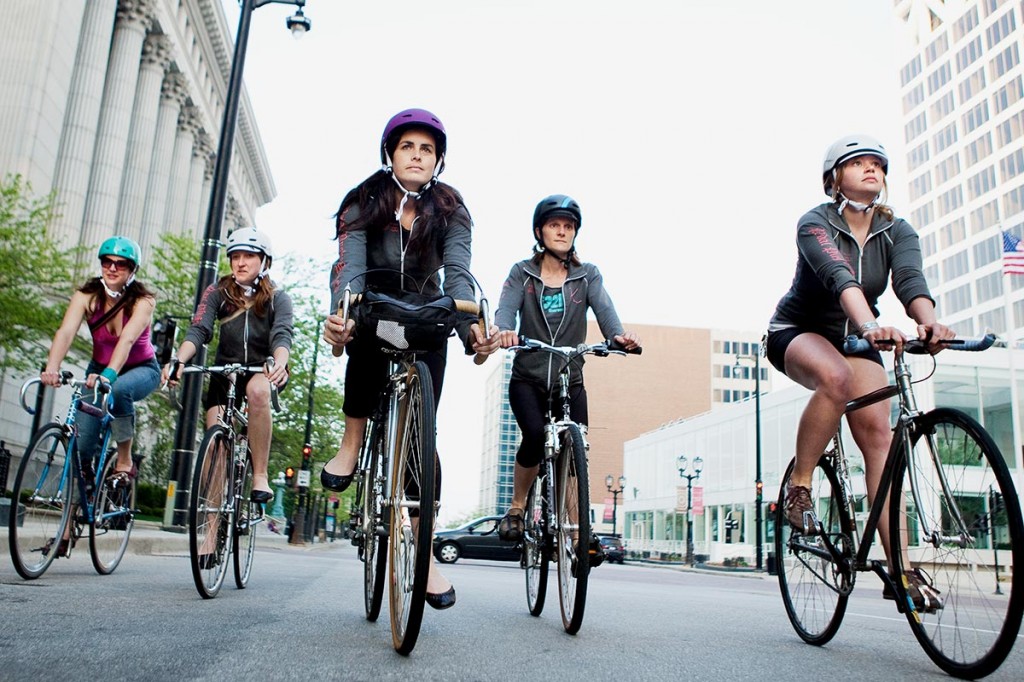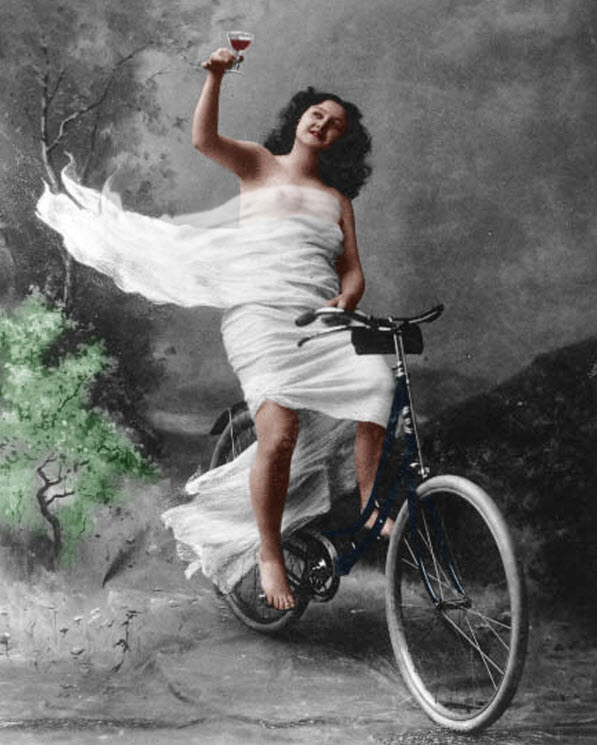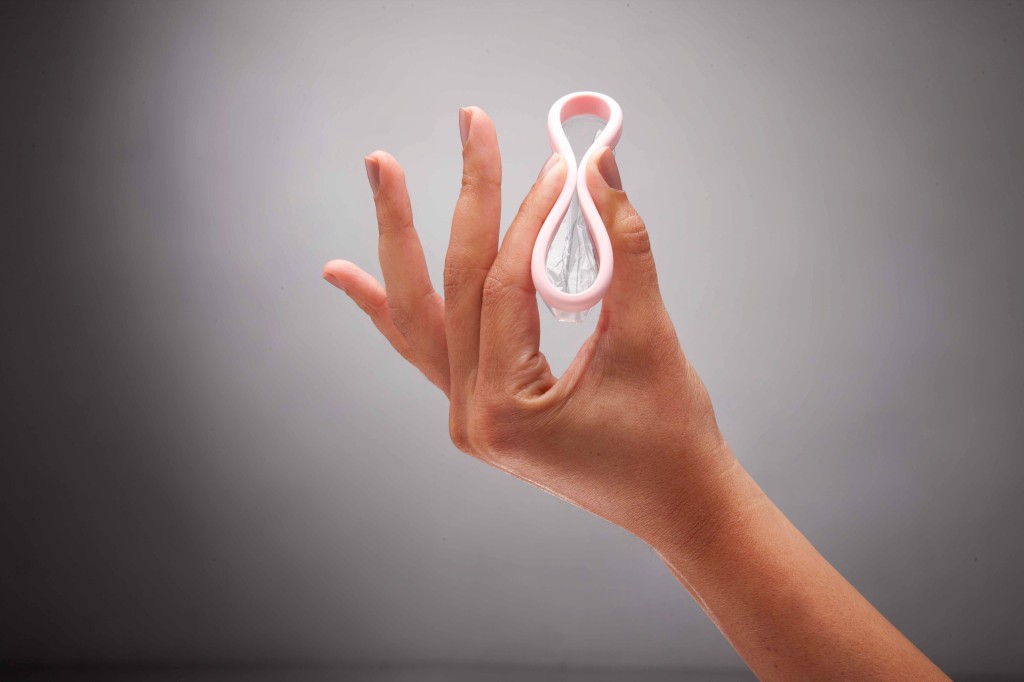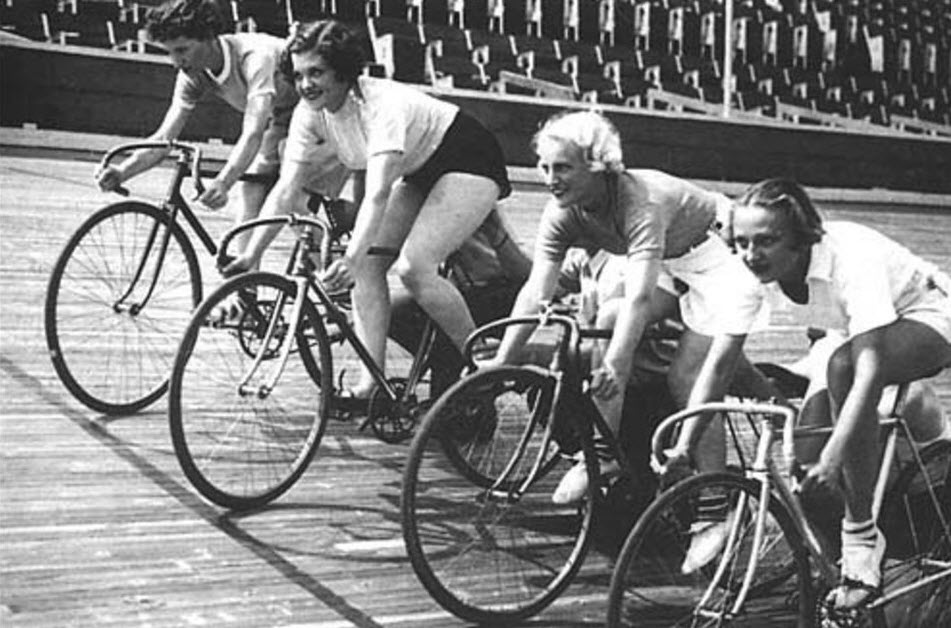WHAT DO YOU GET when you cross environmentally-friendly transport with environmentally-friend menstrual care? Sustainable Cycles — a collective of “spokeswomen” (nice pun) who undertake cross-country bike tours to educate people on the wonders of alternative period products like the Diva Cup and Luna pads. They are currently gearing up (I can do nice puns, too) for their third tour, during which six women will cycle from the West Coast to Boston on two separate routes. Along the way they will be handing out samples of menstrual care products from a number of different brands at organized events and to people they meet on their travels.
After meeting up in Richmond, Virginia, they’ll head together to the Society for Menstrual Cycle Research conference in Boston, being held in June, where they will present what they’ve seen, whom they’ve met and how much they’ve learned. (By the way, SMCR has a great blog with a great punny title – re:Cycling.)
The ladies behind this innovative idea need $10,000 to set themselves on the right path to make this a success. They’re accepting funds through Indiegogo, but they also welcome donations of equipment and suggestions for places to hold workshops and make connections.
LadyClever chatted with co-founder Toni Craige and spokeswomen Ruby Gertz, Sarah Wilson, and Rachel Horn, all of whom will be embarking on the upcoming tour.
How did you first come up with the idea for this project?
Toni Craige: Sarah Konner and I did a bicycle tour together in 2009 just for fun and had a great time. We wanted to do a second tour for a cause, and we chose sustainable menstrual products. It’s just too perfect: Sustainable. Cycles. We also think that bicycling as a cause and eco-friendly products as a cause share a lot in common — they are both aligned with physical health, feminist empowerment, and environmentalism.
Ruby Gertz: Sarah Wilson and I found out about Sustainable Cycles when Sarah Konner did a workshop for our women’s bike group, WEBike NYC, last year.
Sarah Wilson: This is my first tour. I was impressed and drawn by Sarah Konner’s candidness about menstruation, and how she created a safe space for conversation. I am nervous about the tour, but incredibly excited. I anticipate there will be uphill days when I am sure my legs will fall off. And I am sure there will be sleepless nights where I want to disappear back into my bed. But in reality, I am so passionate about these alternatives that I am willing to bike across the country in hopes of making other women’s lives easier.
When did the taboo of menstruation first come to your attention?
Ruby Gertz: I think it’s always been inherent in my life experience as a woman in the US, but I started to really think critically about it after attending that first Sustainable Cycles workshop and doing some research for the tour.
Sarah Wilson: Menstruation taboos first came to my attention with my very first period at age 9. I was the first in my school (I assumed) to get “the curse,” and was not prepared. My mother told me loosely to “put a pad on” when I told her. It was months before I even found the adhesive strip on pads, and it was constantly slipping. Of course I thought everyone knew my secret, but I felt that there was no one I could talk to about it. I remember feeling ashamed, and that it was my fault that I had gotten my period so early.
When did you start using environmentally-friendly menstrual products and why?
Toni Craige: I lived in an environmentalist house all throughout college and never heard about menstrual cups. When Sarah Konner told me about them on our first bicycle tour in 2009, I was blown away. I knew that the taboo must be strong if I attended a very liberal university, lived in an environmentalist house, and still hadn’t heard of them. Sarah bought me my first cup, then a year later we started Sustainable Cycles together.
Rachel Horn: I started as a sophomore in college because that is when the cup would finally fit! I had tried as a 16-year-old to no avail. My concern was mainly environmental. I am very conscious of the use of disposable products in all aspects of my life. This was an easy way to save money and save on trash.
Ruby Gertz: I started using a Divacup after I got to take one home with me from the Sustainable Cycles workshop. I love it, and I’ve never gone back!
Sarah Wilson: I started using the Divacup in 2009. A friend I really respected told me she used it, and really sold it. That is why the trip is important. A personal connection makes it easier to understand, and [you can] ask embarrassing questions pertaining to the product.
How do you start conversations and meet people while on the tour?
Rachel Horn: Seeing a couple of bicyclists with a bunch of stuff, people often started conversations with us. In many places, I had arranged for a workshop ahead of time by seeking out community leaders. I found these leaders through friend networks, co-op networks, and through the Female Sexuality Network.
What was the most memorable moment of your tour last year?
Rachel Horn: The people! On several occasions, we landed in a town where we met a stranger in town who arranged accommodations for us that very night. More often than not, the stay included dinner and interesting conversation.
What was the hardest moment?
Rachel Horn: The first night we got into Utah, I got food poisoning. I remember thinking: “Well, I biked myself here, now I have to bike myself out of here.” This task seemed daunting because I was not feeling healthy. I often take good health for granted; to fall ill was sobering.
Did you have any of your assumptions about women’s approach to periods overturned?
Rachel Horn: The most profound assumption that was overturned was when we visited a women’s health clinic in San Francisco with a mainly homeless constituency. I am [still] processing the interactions. These women are confronted with many complicated issues; it was brought to my attention that keeping track of any object (like a reusable cup or pad) would be a potential problem.
Did you achieve anything that you had not expected?
Rachel Horn: Completing the cross-country route was a question, for I had never done a bike trip so long. I wasn’t sure I was going to make it over the Rocky Mountains! It was a nice achievement to make it to NYC.
What new connections have you made as a result of the tour?
Rachel Horn: Countless. I met the president of a university club and a foster mom of a dozen kids, each of whom are a key part in this grass-roots project.
Ruby Gertz: Though Sarah Wilson and I haven’t done our tour yet, I’ve found that in preparation for it, I’ve gotten a lot more comfortable talking to random strangers about menstruation. I even talked to a random guy I met on the Chinatown bus to Boston about menstrual cups, and he was surprisingly really interested! I’ve been surprised that, in general, men seem to be a lot less grossed out than we expect them to be.
What will you present at the Society for Menstrual Cycle Research conference, once you finish your tour?
Sarah Wilson: At the SMCR conference, we will be holding a Sustainable Cycles workshop, where [we’ll] talk in-depth about alternative products. We will then share meaningful trip memories, connections, and hardships. A major part of our workshop will also be how to become your own activist, and how to start a program involving all of your passions. Bikes, Environment, Feminism, Health — who knew I could combine all of these passions into one giant amazing project!
If you’re feeling passionate about the work Sustainable Cycles is doing, consider donating to their cause. They have great figures on their website about how much environmentally-friendly/sustainable feminine hygiene products can save users in the long run. And you might even be inspired to give your own workshop and embark on your own Sustainable Cycles tour — they have a lot of information for people who want to get involved.




















